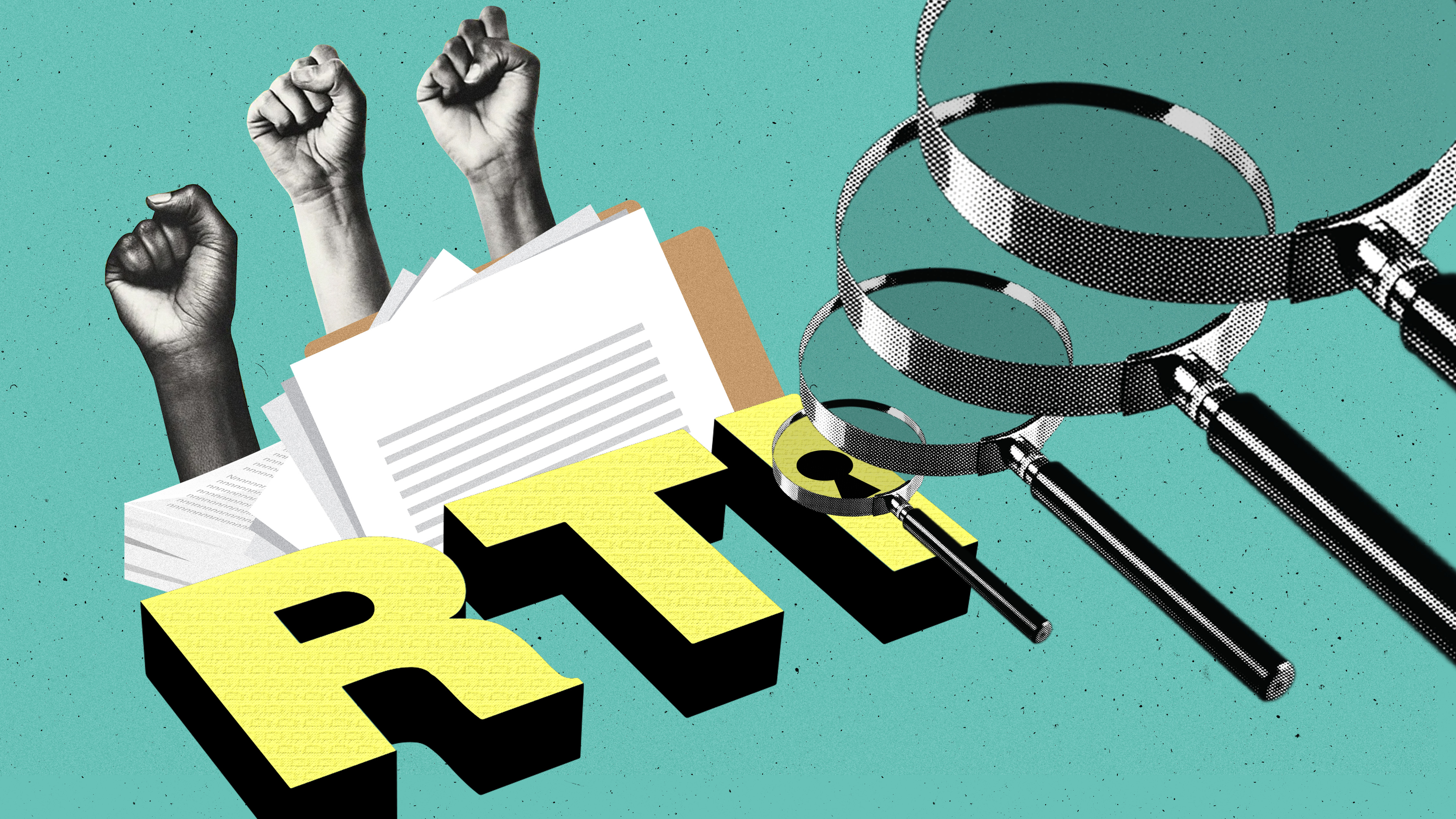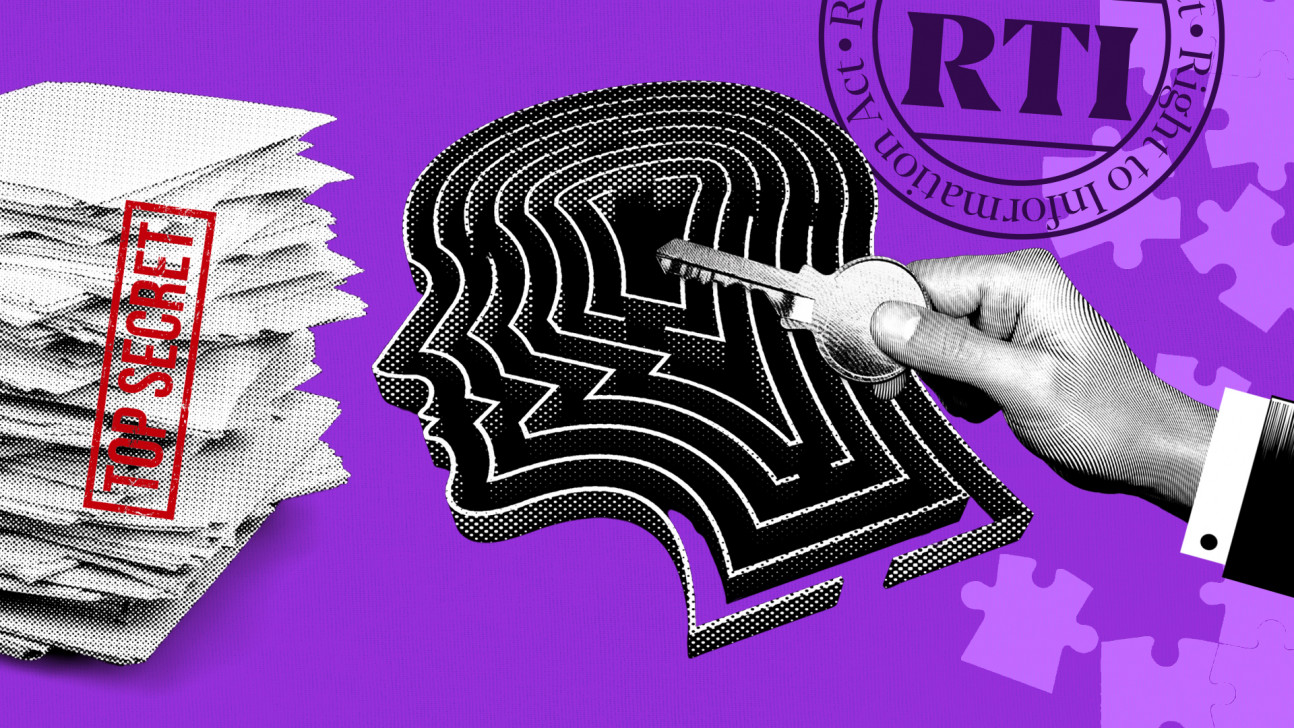How to use RTI when there are no information commissioners

The right to information (RTI) regime in Bangladesh lost momentum with the departure of all three commissioners of the Information Commission following the mass uprising in July-August 2024. However, determined citizens are trying to make do and refusing to give up. Conferring with RTI activists from around the country, we can discern how they are creatively making the most of the situation.
In Dinajpur sadar, an RTI applicant was outraged by the quality of public healthcare services at local facilities. Reports of inadequate medical supplies, cleanliness, and insufficient staff were widespread. The lack of transparency regarding healthcare budgets and service standards further exacerbated the community's concerns. Responding to these challenges, she filed an RTI request with the relevant health authorities, seeking information about the allocated healthcare budgets, expenditures, and service standards for local healthcare facilities. To her utter delight, she and others soon noticed a conspicuous change in the quality of healthcare services in the concerned area. The authorities appeared to have immediately undertaken a review of their service standards. Medical supplies were replenished, cleanliness and hygiene were improved, and efforts were made to ensure staffing levels met the established standards.
The interim government should encourage all public officials to respond diligently to the citizens' RTI requests by using these examples, pending the appointment of the information commissioners.
Adapting to the absence of information commissioners, it would be best to focus RTI interventions more on systemic change in governance, which serves public interest, rather than on matters of individual interest. Records show that since the adoption of the RTI Act in 2009, citizens have largely used the law for personal reasons, such as accessing benefits under the government's safety net programmes, obtaining various types of licences, and securing job promotions, among others. Gradually, we have moved on to addressing small-scale transparency issues of societal interest, such as reviewing contract documents for the construction or repair of local roads and ensuring transparency in the tender process.
The next level involves invoking the law in matters such as unfair and discriminatory practices, misuse or abuse of power, deprivation of entitlements, corruption in public works, and the implementation of laws and administrative orders.
With increased experience, consideration was given to applying the law to address larger national issues. For example, there were thoughts about filing RTI requests to investigate the escalating costs of numerous megaprojects in the country, such as the Padma Bridge. However, fear of official retaliation prevailed. The July uprising spurred hope that the law could now be applied without fear or anxiety, but that hope remains unfulfilled just like the positions of the information commissioners.
Focusing on transparency and accountability issues of public interest that are aimed at systemic change aligns with the fundamental objectives of the RTI Act. A close reading of the law makes it abundantly clear that its ultimate aim is to change how the country is governed. The idea is to banish the age-old practice of official secrecy and replace it with open governance where citizens can monitor the government's work and hold public officials accountable for their negligence and/or misdeeds. This is best achieved when citizens utilise the law to serve as watchdogs over the work of government offices, monitoring how government policies are implemented and the obstacles they encounter along the way.
To advance this objective, the best approach would be to frame RTI requests in a manner that designated officials, charged with dealing with RTI requests, would not feel any personal unease about the request but would rather be inclined to respond positively as part of their national responsibility. Filing multiple applications on the same subject by many applicants may be the trick in this regard.
To what issues can this approach of broader societal benefit be applied? A recurring topic is the poor state of the public health sector, which affects ordinary people daily. The absence of doctors in public clinics or hospitals during duty hours, along with their general indifference towards patients, is legendary. Concerted efforts may help change the situation. The first task would be to identify the target clinic or hospital, request the names of doctors assigned to it, and ask for their attendance records. It will be difficult not to respond if there are many requests on the same subject. Success here may be multiplied by similar approaches at other places.
Another hot topic is the chronic teacher absenteeism and poor academic outcomes in public primary schools, particularly in rural areas. Citizens may request teacher attendance records, school inspection reports, and student performance data. An approach like this in Nilphamari resulted in disciplinary steps against absentee teachers.
A perennial problem for the marginalised population in the rural areas is that eligible children of these communities are often denied government scholarships/stipends. RTI requests for a list of recipients from the school or education office, as well as information on the selection criteria and attendance records, should suffice. Such an approach helped uncover irregularities in some cases, and students got their entitled benefits.
Ordinary citizens often face delays, bribes or manipulation when attempting to register or transfer land. A strategy to address the situation would be to obtain information on the number of mutation applications received and resolved over the past six months and inquire about the reasons behind pending cases. Additional requests for prescribed official processing times and staff duty rosters can also be helpful.
Allegations of nepotism or bribery in the recruitment of schoolteachers, health workers, and other professionals are also prevalent in many places. Information requests for the list of applicants, selection committee members, and final merit lists may be the trick to cracking the nut. Requesting interview scores and appointment letters is also likely to be helpful.
There are numerous other similar issues for which the RTI request strategy may be effective. We hope that the citizens will continue to use the law despite the temporary setback they face due to the absence of information commissioners. Such broader use of the law will build on the gains made over the years by many dedicated RTI users. In the meantime, we urge the interim government to prioritise the appointment of new information commissioners.
Dr Shamsul Bari and Ruhi Naz are chairman and deputy director (RTI), respectively, off Research Initiatives, Bangladesh (RIB). They can be reached at rib@citech-bd.com.
Views expressed in this article are the author's own.
Follow The Daily Star Opinion on Facebook for the latest opinions, commentaries and analyses by experts and professionals. To contribute your article or letter to The Daily Star Opinion, see our guidelines for submission.




 For all latest news, follow The Daily Star's Google News channel.
For all latest news, follow The Daily Star's Google News channel. 


Comments